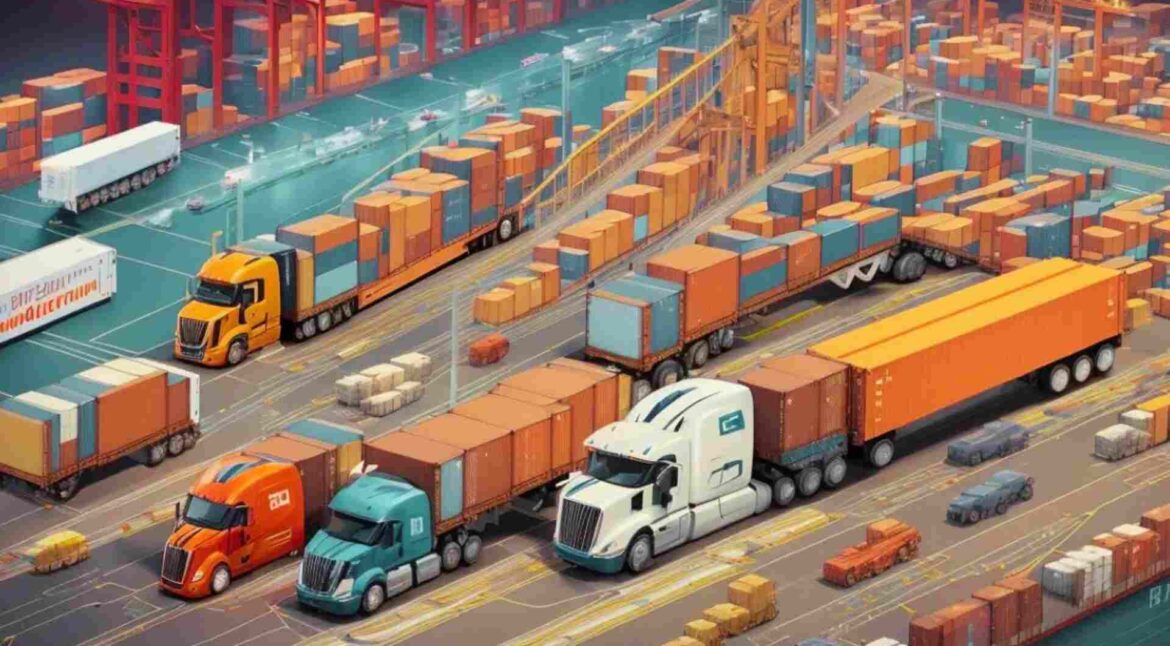Digital Revolution: Freight Dispatching Tech
Introduction to Freight Dispatching
In the fast-paced world of logistics, freight dispatching plays a crucial role in ensuring goods reach their destinations efficiently. Traditionally, this process relied heavily on manual coordination and paperwork. However, with the advent of technology, there has been a significant revolution in how freight dispatching is managed. This blog will delve into the digital revolution in freight dispatching technology, exploring its impact on truck dispatching and logistics management.
The Evolution of Freight Dispatching
From Manual to Digital: A Paradigm Shift
In the past, freight dispatching was labor- intensive, often involving numerous phone calls, faxes, and paperwork. Dispatchers had to track shipments manually, communicate with drivers, and coordinate schedules. This manual approach was time-consuming and prone to errors and delays.
Introduction of Technology
The introduction of technology revolutionized the freight dispatching process. Advanced software solutions specifically designed for logistics management emerged to streamline operations. These platforms automate many aspects of dispatching, from order entry to route optimization, drastically reducing the need for manual intervention.
Key Technologies Driving the Digital Revolution
Transportation Management Systems (TMS)
TMS platforms are at the forefront of the digital revolution in freight dispatching. These comprehensive software solutions offer order management, route planning, and real-time tracking features. By integrating with other systems and utilizing data analytics, TMS enables dispatchers to make informed decisions quickly and efficiently.
GPS and Telematics

Digital world revolution in freight dispatching
Global Positioning System (GPS) technology has transformed how trucks are dispatched. Telematics devices installed in vehicles provide real-time location data, allowing dispatchers to monitor the progress of shipments and optimize routes on the fly. This level of visibility enhances efficiency and helps minimize delays.
Electronic Logging Devices (ELDs)
ELDs have become mandatory for commercial truck drivers, replacing traditional paper logbooks. These devices automatically record driving hours, ensuring compliance with regulations such as Hours of Service (HOS) rules. By digitizing the logging process, ELDs simplify driver record-keeping and provide accurate data for dispatchers.
Benefits of Digital Freight Dispatching
One of the primary benefits of digital freight dispatching is improved Efficiency efficiency. Automation reduces the time spent on manual tasks, allowing dispatchers to focus on higher-value activities. Real-time data and analytics enable better decision-making, leading to optimized routes, reduced idle time, and faster delivery times.
Enhanced Visibility
Digital freight dispatching provides enhanced visibility into the supply chain. Dispatchers can track shipments in real-time, monitor vehicle performance, and receive alerts for potential issues. This visibility improves customer satisfaction by providing accurate delivery estimates and allows for proactive problem-solving.
Cost Savings
Digital freight dispatching can lead to significant cost savings by streamlining operations and optimizing routes. Reduced fuel consumption, fewer empty miles, and lower administrative overhead contribute to improved profitability for logistics companies. Additionally, better resource utilization ensures that assets are utilized efficiently, maximizing ROI.
Challenges and Considerations
Integration Complexity
While digital freight dispatching offers numerous benefits, implementing and integrating new technologies can be complex. Companies may face system compatibility, data migration, and employee training challenges. It’s essential to carefully plan the implementation process and ensure all stakeholders are on board.
Cybersecurity Concerns
With increased reliance on digital systems comes the risk of cybersecurity threats. Hackers may target transportation networks, compromising sensitive data or disrupting operations. Companies must invest in robust cybersecurity measures, such as encryption, firewalls, and regular audits, to protect against potential threats.
Conclusion
The digital revolution has transformed freight dispatching, ushering in an era of efficiency, visibility, and cost savings. Technologies such as Transportation Management Systems, GPS tracking, and Electronic Logging Devices have revolutionized how logistics companies manage their operations. While challenges exist, the benefits of embracing digital freight dispatching far outweigh the risks. By leveraging technology effectively, companies can stay ahead of the competition and deliver exceptional service to their customers in today’s rapidly evolving logistics landscape.


